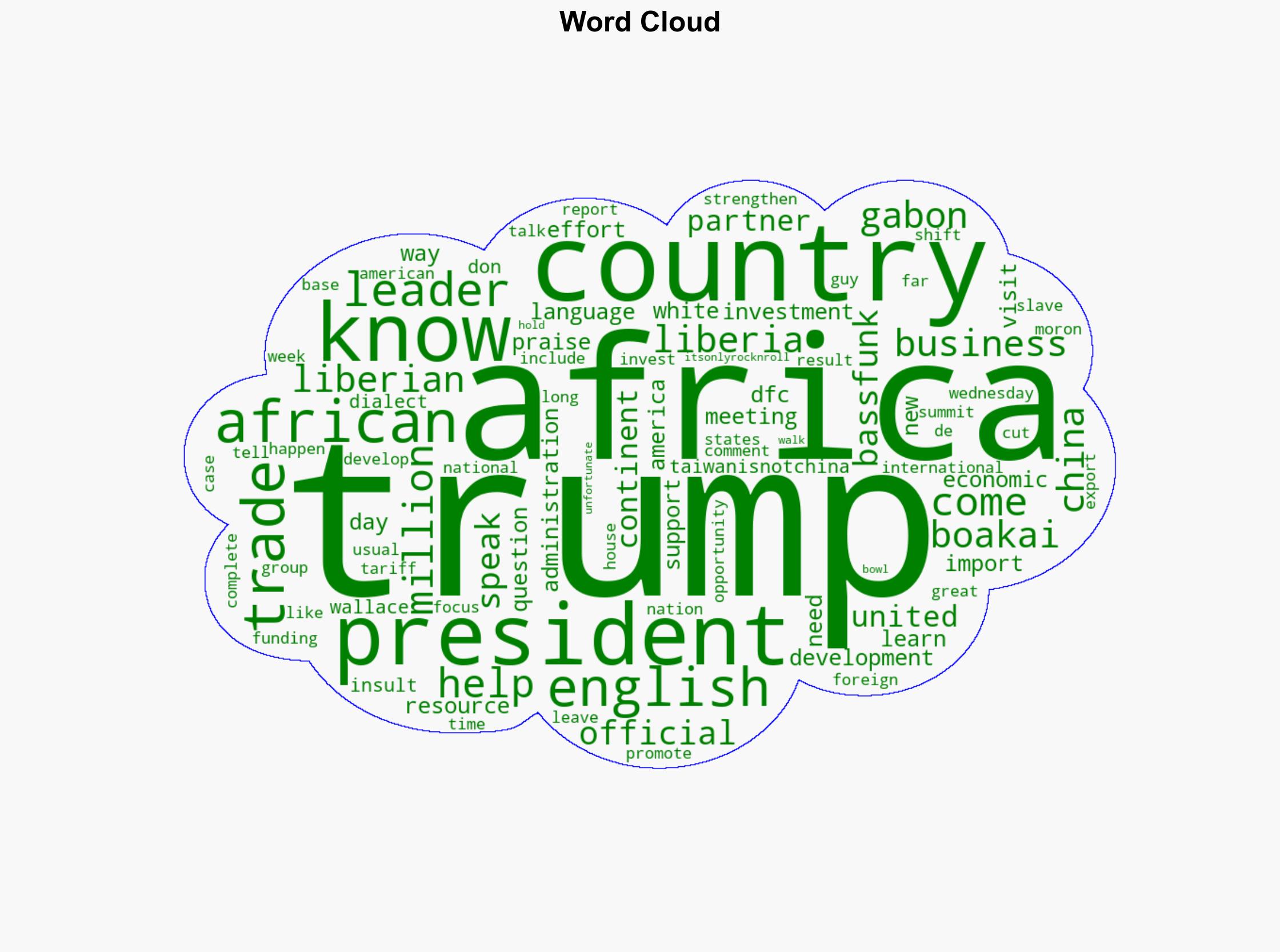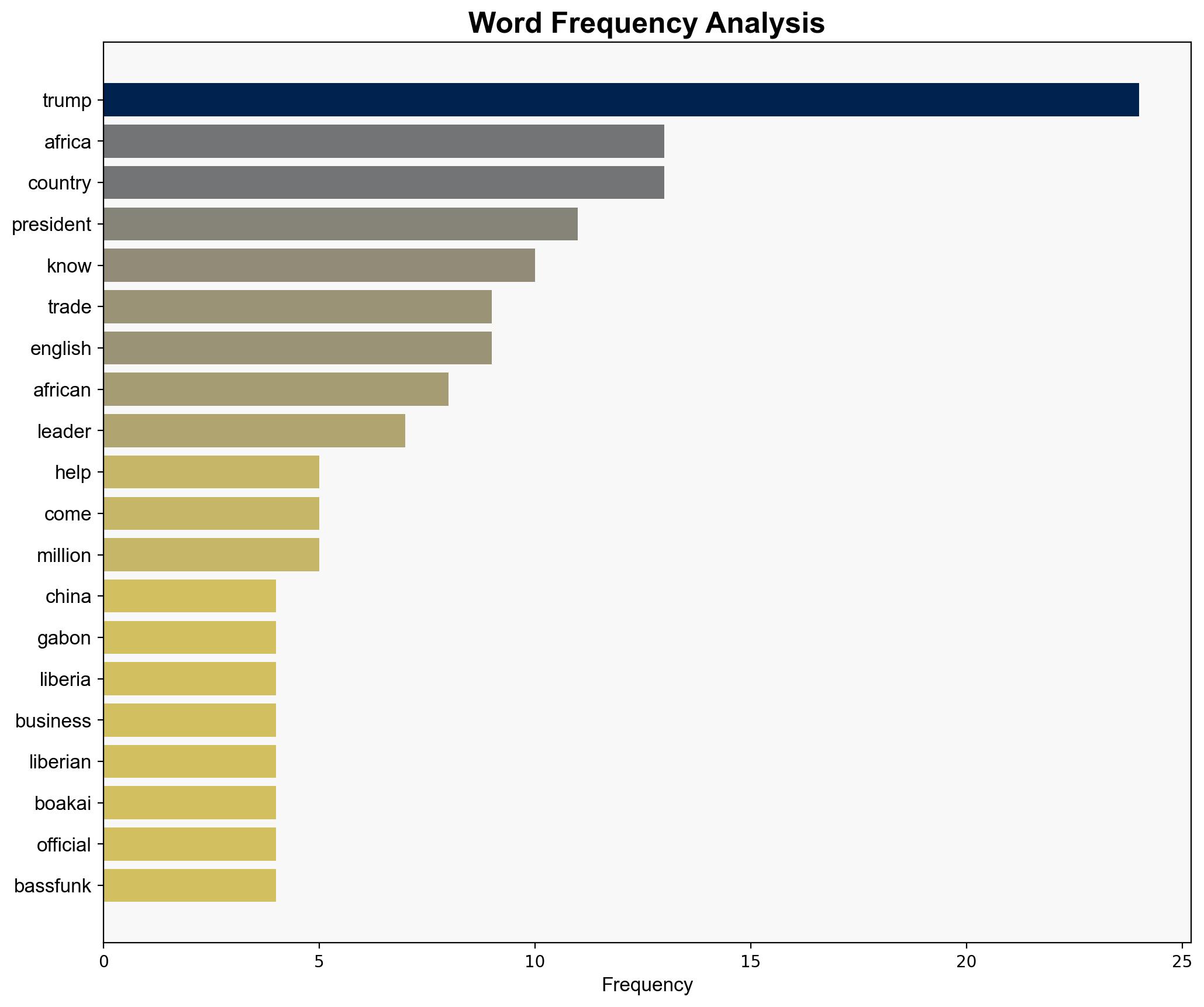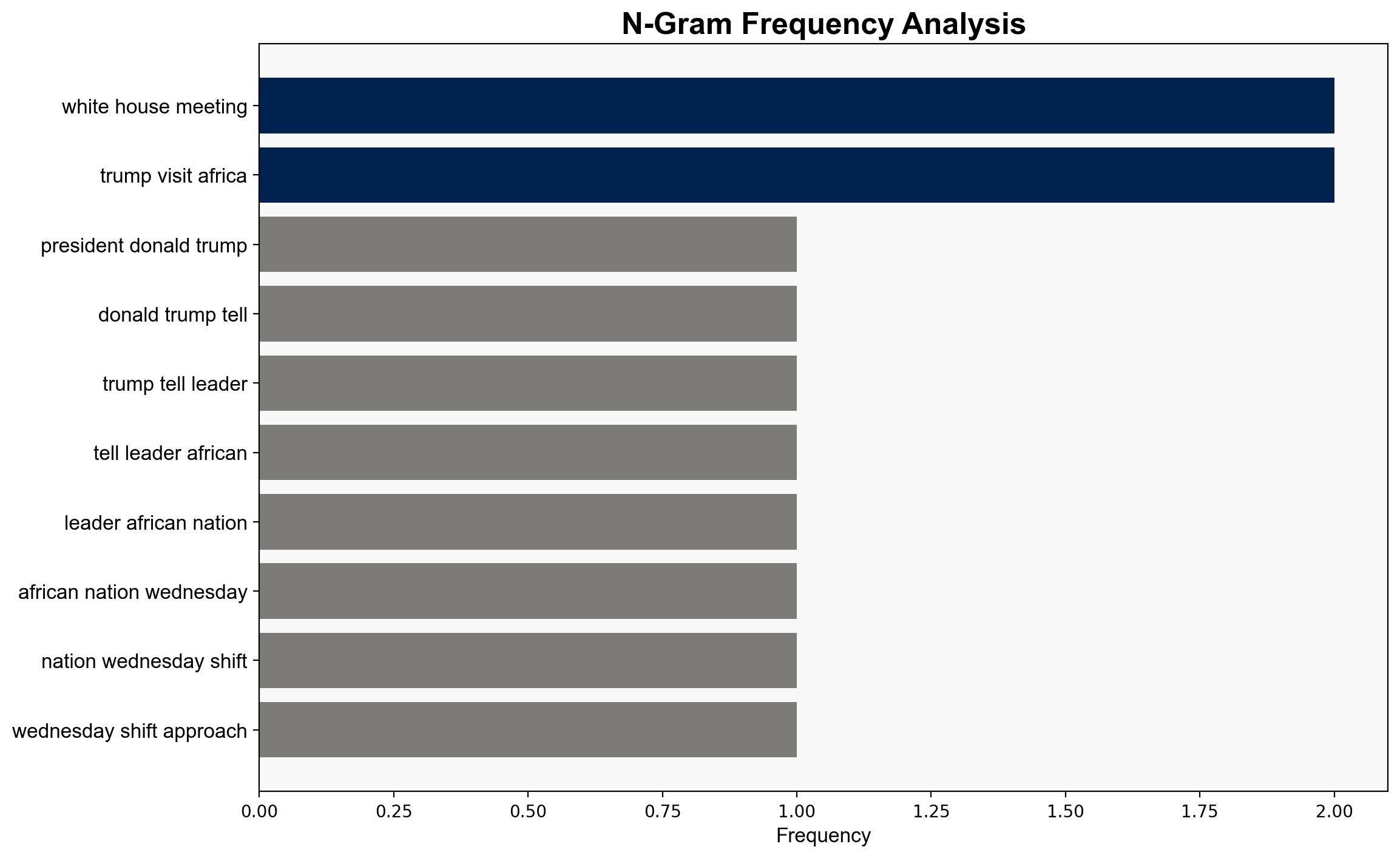Trump sells shift from ‘aid to trade’ in White House meeting with African leaders – Japan Today
Published on: 2025-07-09
Intelligence Report: Trump sells shift from ‘aid to trade’ in White House meeting with African leaders – Japan Today
1. BLUF (Bottom Line Up Front)
The U.S. administration is shifting its strategy towards Africa from aid-based assistance to trade-focused partnerships. This approach aims to counter China’s growing influence on the continent by promoting economic opportunities and investment. The strategy involves reducing traditional aid and increasing trade and investment, potentially impacting U.S.-Africa relations and regional stability.
2. Detailed Analysis
The following structured analytic techniques have been applied to ensure methodological consistency:
Causal Layered Analysis (CLA)
Surface Events: The U.S. administration’s meeting with African leaders highlights a strategic pivot towards trade.
Systemic Structures: The closure of aid agencies and reduction in aid funding reflect a broader policy shift.
Worldviews: The U.S. sees trade as a more sustainable and beneficial approach compared to aid.
Myths: The narrative of Africa as a continent of untapped economic potential is being reinforced.
Cross-Impact Simulation
The shift from aid to trade may influence neighboring states’ economic policies, potentially leading to increased regional competition for U.S. investment. This could alter existing alliances and economic dependencies, particularly in resource-rich areas.
Scenario Generation
Best Case: Strengthened U.S.-Africa trade relations lead to economic growth and stability in the region.
Worst Case: Reduced aid results in increased instability and humanitarian issues, exacerbating regional conflicts.
Most Likely: A mixed outcome where some countries benefit from trade while others struggle with reduced aid.
3. Implications and Strategic Risks
The strategic shift poses risks of increased Chinese influence if U.S. investments do not match expectations. There is potential for political backlash from African leaders who may perceive the reduction in aid as neglect. Additionally, the focus on trade could lead to economic disparities within the continent.
4. Recommendations and Outlook
- Enhance diplomatic engagement to reassure African partners of the U.S. commitment to the continent.
- Develop targeted investment strategies that address both economic and humanitarian needs.
- Monitor Chinese activities in Africa to anticipate potential shifts in influence and adjust strategies accordingly.
5. Key Individuals and Entities
Donald Trump, Joseph Boakai, Brice Clotaire Oligui Nguema, Cyril Ramaphosa, Conor Coleman, Troy Fitrell
6. Thematic Tags
U.S.-Africa relations, trade policy, economic development, geopolitical strategy





